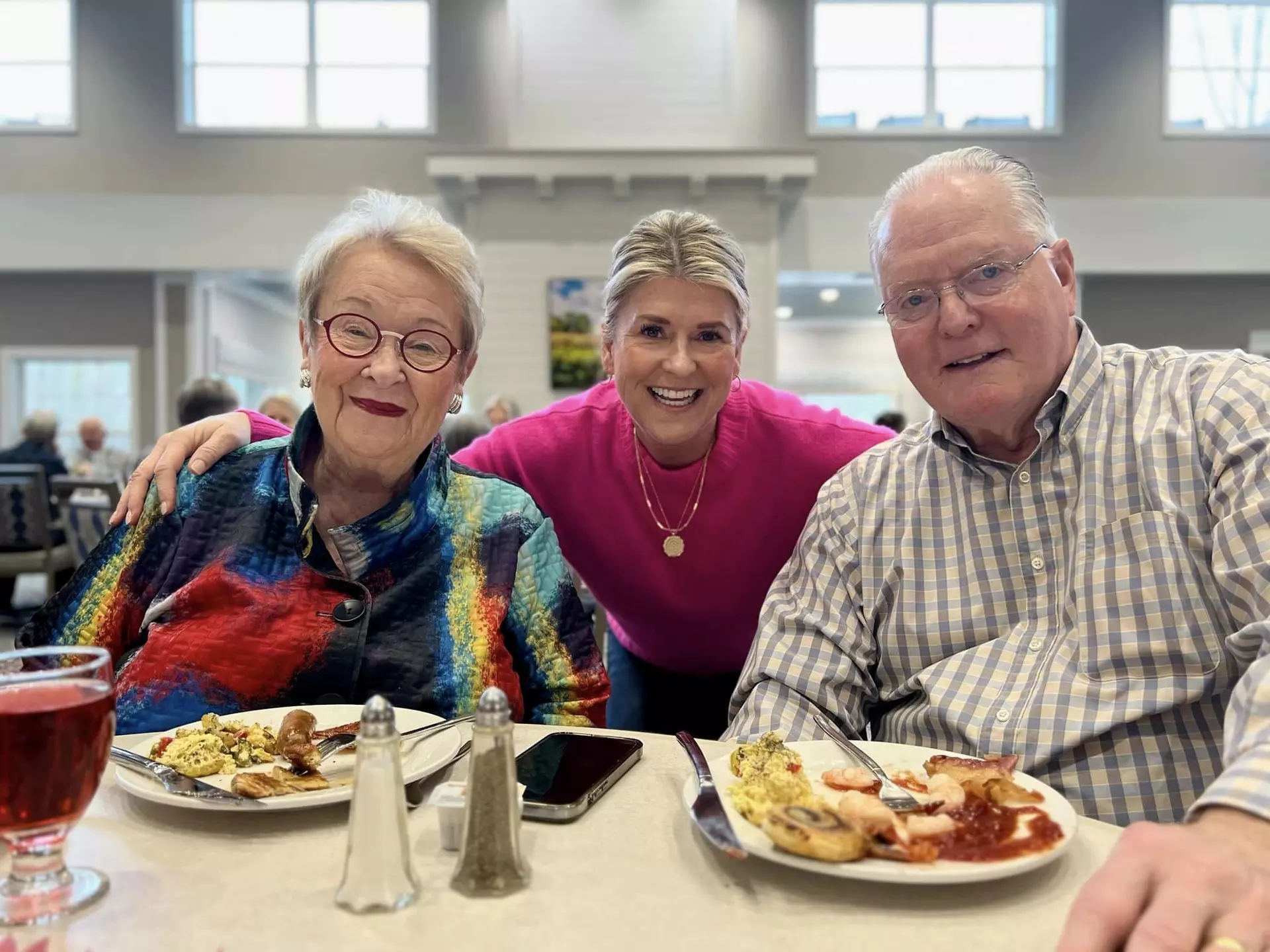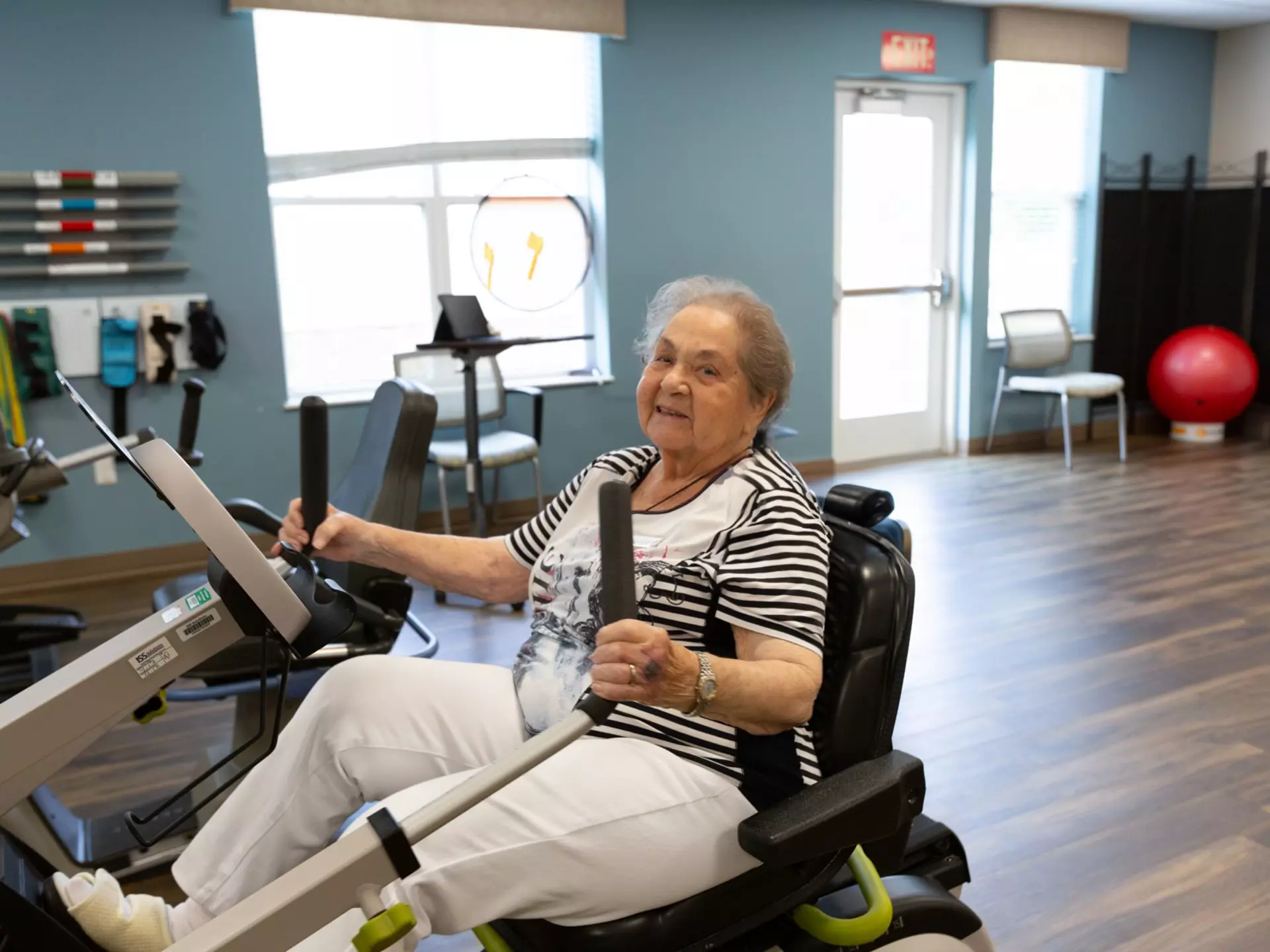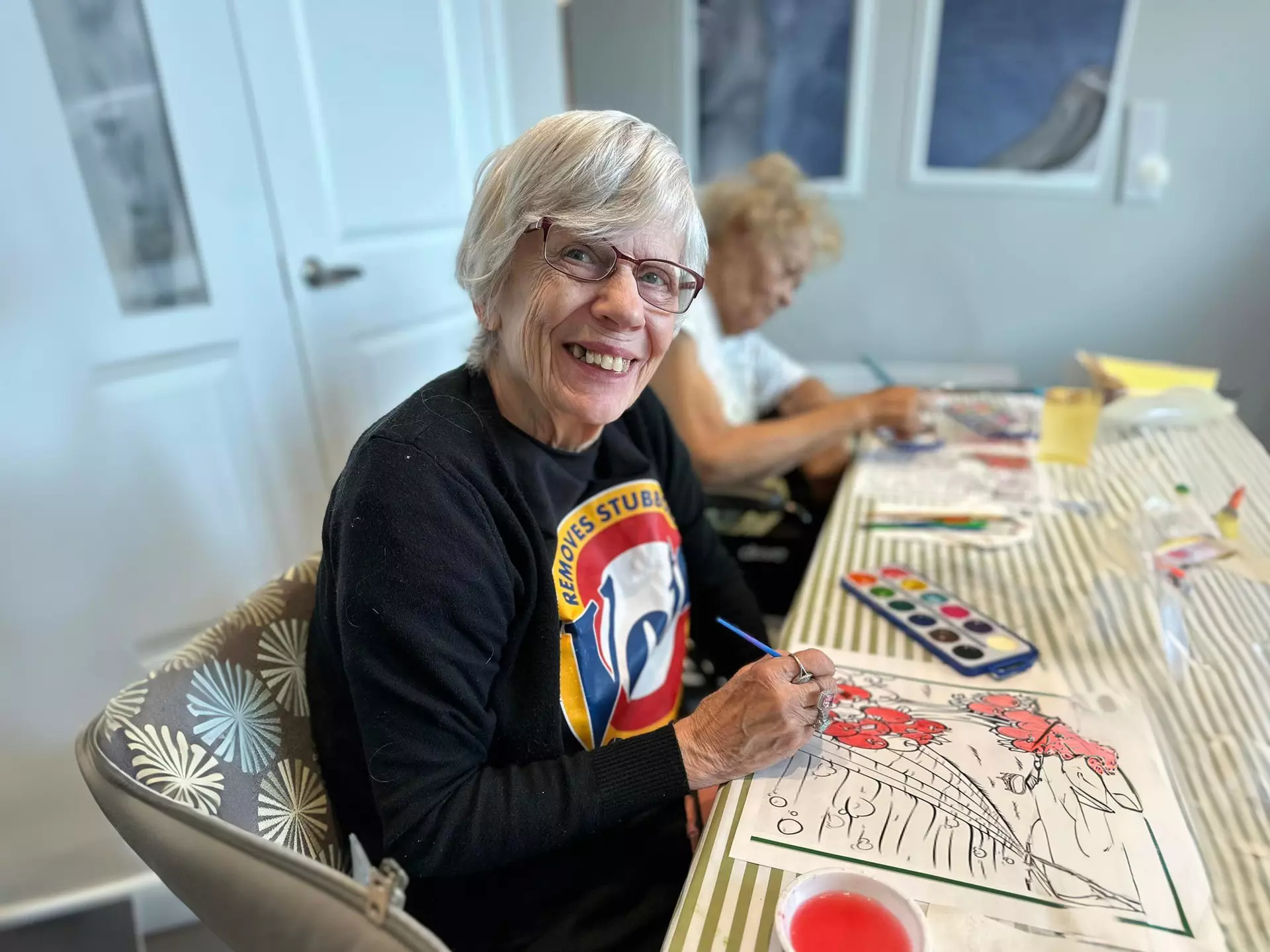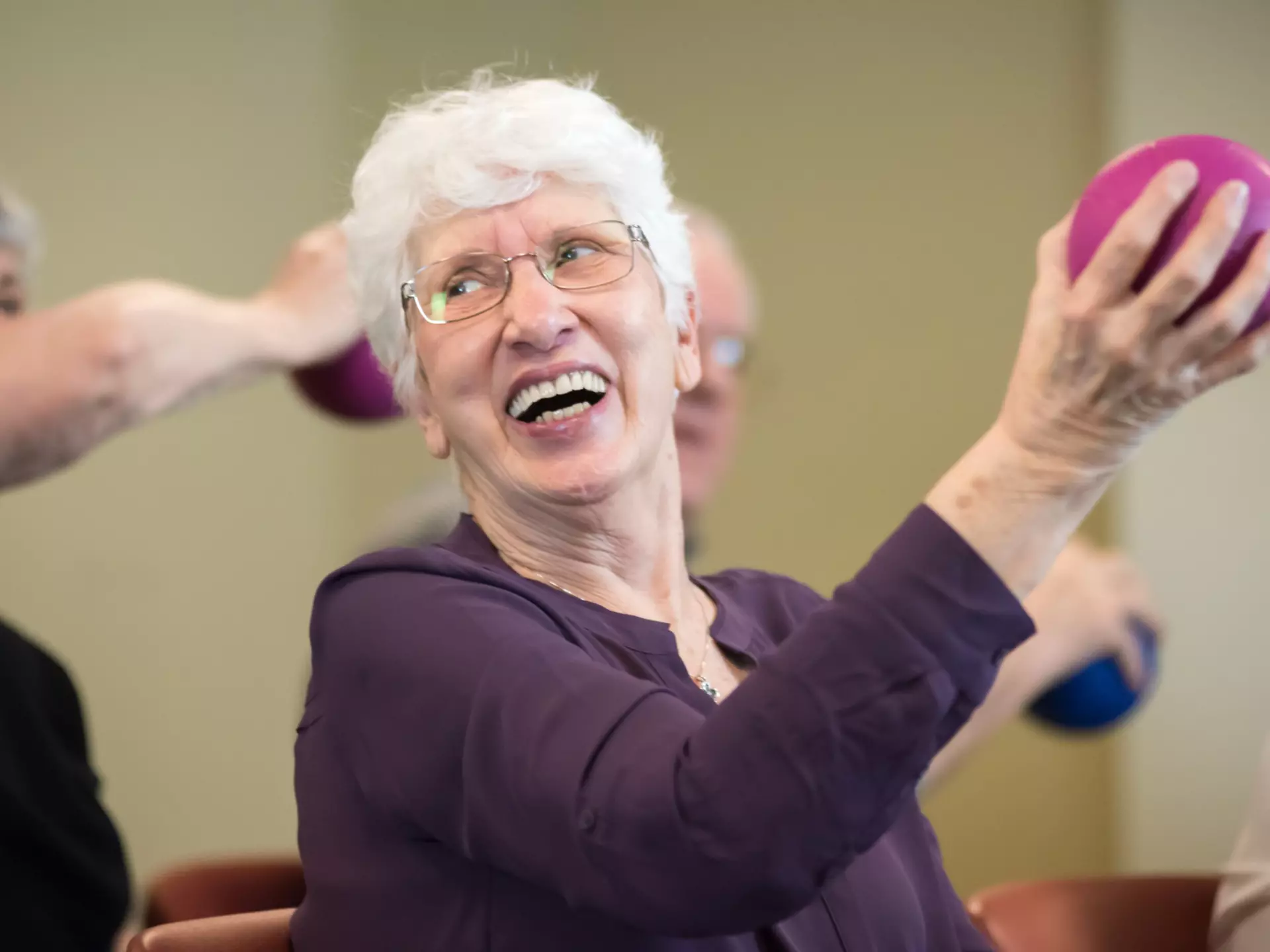As we navigate life’s ups and downs, it’s important to set aside time for ourselves. This can mean missing out on the many wonderful benefits of self-care. According to experts, older adults who prioritize their own well-being tend to live happier and healthier lives compared to those who don’t.
If you aren’t sure how to start your wellness journey, we’re here to help guide you. In this blog, we’ll explore the importance of self-care for seniors and share some practical tips to help you create a routine that fits your needs and lifestyle.
What Is Self-Care?
Self-care means taking proactive steps to nurture your physical, emotional, and psychological well-being. When practiced regularly, self-care activities for seniors can significantly improve quality of life, help individuals preserve independence for longer, and promote mental and emotional health.
The Importance of Self-Care for Seniors
While personal wellness is important for everyone, it can be particularly beneficial for older adults. Here are a few notable advantages of practicing self-care for seniors:
- More Independence: Self-care habits like eating well and exercising help support good physical and mental health, which is incredibly useful for performing activities of daily living (ADLs), like meal preparation, bathing, and mobility.
- Preserve Cognitive Abilities: It’s normal for our cognitive abilities to decline as we age. Personal wellness habits, like getting enough sleep and spending time with friends and loved ones, are good for your brain health and may even help reduce the risk of memory challenges in later years.
- Personal Fulfillment: Whether it’s reigniting past hobbies, cultivating meaningful relationships, or simply enjoying more time with loved ones, prioritizing wellness can help set a good foundation for a balanced and fulfilling lifestyle.
- Reduced Stress: Sometimes, the daily stressors of life may get in the way of us feeling our best. Self-care routines, like going for a walk, performing breathing exercises, or practicing meditation, may help boost happiness levels and combat feelings of stress and anxiety.
Prioritize Physical Health
It’s normal for older individuals to experience changes in their health. Even if you’re feeling generally healthy, it’s always a good idea to schedule regular appointments with your doctor to help catch and address potential issues early.
If you’re recovering from surgery or dealing with an existing health condition, it’s important that you take medication as needed and follow your doctor’s instructions.
Perform Brain Exercises
Just like your body needs regular exercise, your brain does, too. To keep your brain sharp and healthy, consider taking up a retirement job, playing brain-healthy games, joining a book club, or learning a new skill on a topic that interests you.
In addition to helping preserve your cognitive skills, which are increasingly important as we age, good brain health can also help delay or prevent cognitive decline among older adults.

Eat Healthy and Stay Hydrated
It’s well known that eating a well-balanced diet can play a key role in maintaining good health. While you may indulge in the occasional treat, it’s important to prioritize healthier foods, such as whole grains, vegetables, and lean protein.
Try to limit or avoid processed foods or anything loaded with too much sugar, particularly if you’re managing a chronic condition. It’s also important to drink plenty of water to stay hydrated throughout the day. You may also want to limit your intake of soft drinks, as these have been shown to have potential negative health effects.
Instead, try incorporating healthier alternatives like fruit juice or adding more fruits and vegetables to your diet.
Manage Stress
High levels of stress have been shown to have many negative health effects, including high blood pressure and heart problems.
To help manage stress levels, consider adding self-care activities like yoga, breathing exercises, tai chi, and meditation to your routine. Sometimes, the worries of life can feel overwhelming, and that’s normal; you don’t have to figure it out alone. If you need additional help or simply someone to offer a listening ear, consider speaking to a trained professional who can help you develop strategies to manage these feelings.

Exercise Regularly
One of the best ways to practice self-care for seniors is by regularly engaging in physical activities. However, the natural limitations of aging can make certain exercises more challenging or even unsafe for some older adults. Try starting your day with gentle stretches or slow walks through walking paths, around the parking lot, or in your neighborhood. Even a few minutes of light to moderate exercise can do wonders for your overall well-being.
If you want to meet new people to enjoy your workouts with, consider signing up for a senior fitness class in your area. Before trying out a new workout, particularly if you have an existing medical condition, it’s always wise to speak with your doctor first. They can help you figure out which exercises are good for you.
Stay Socially Connected
It’s normal for our social circles to shrink as we grow older. As such, many seniors — especially those who live alone — may face an increased risk of feeling lonely and isolated, which can lead to depression and anxiety.
Regularly check in on family and loved ones and enjoy time together as often as possible. If you want to meet new friends, consider checking out senior living communities in your area. Many of them offer plenty of opportunities for residents to socialize, including fitness classes, game nights, and group outings.
Get Enough Sleep
Not getting adequate sleep has been linked to numerous health problems, including a weakened immune system, cognitive decline, and heart disease. Experts say we should aim for around 7 to 9 hours of quality sleep each night. If you’re having trouble falling asleep, try to limit naps during the day, avoid coffee before bedtime, establish a regular sleep routine, and refrain from using your phone before bed.

Explore Hobbies and Interests
People who pursue their hobbies and interests in their later years have been shown to experience higher levels of personal fulfillment.
Furthermore, keeping up with your favorite activities can offer a wide range of wellness benefits, such as improved mood, reduced stress, and even opportunities to meet new friends. If you don’t currently have a hobby, consider trying out new activities until you find something you truly enjoy.
How to Incorporate New Habits Into Your Routine
While taking good care of yourself can have many important benefits, adding new habits to your routine can feel overwhelming at first. Here are a few self-care tips for seniors to help you get started:
- Start Small: It’s easy to get excited about big, drastic changes, but this can be overwhelming for many older adults. Start with small, manageable actions, like enjoying nature or drinking enough water, and gradually build on these habits over time. Smaller changes are often easier to integrate into our daily routine, meaning you’re more likely to stick with them in the long run.
- Be Realistic: Sometimes, the natural effects of aging may make some activities unsafe for seniors, which can increase the risk of accidents or injuries. Before you incorporate a new activity into your routine, it’s always a good idea to make sure it matches your ability level. If you have an existing condition, you should seek your doctor’s approval before making changes to your diet or trying out a new exercise.
- Track Your Progress: Tracking your self-care progress can provide a sense of accomplishment and motivate you to stick to your new routine. Make a note of a few things each day that made you feel good, like enjoying time outside or a nice chat with a friend. Or perhaps you could use a chart to tick off when you do things that matter most to you, like getting a good night’s sleep or eating a healthy meal.
- Stay Consistent: Like many things in life, the best way to make self-care habits stick is by making them a lasting part of your daily routine. Even small, manageable steps can make a significant difference over time.
- Seek Help if Needed: Sometimes, a little motivation or encouragement is all we need! If you’re finding it difficult to stick to new habits on your own, consider reaching out to a supportive friend or family member. They can offer some helpful advice or connect you to the right resources to help you stay on track.
Senior Living With StoryPoint Group Communities
At StoryPoint Group communities, our residents’ needs are at the heart of everything we do. Whether you’re looking for a relaxed lifestyle with convenient access to amenities and plenty of opportunities to socialize, need some extra help with activities of daily living (ADLs), or simply want a place to call home, our goal is to help you make the most of every day, your way.
To learn more about life with us or just to say hello, feel free to contact us or give us a call at 1-844-275-9990.














